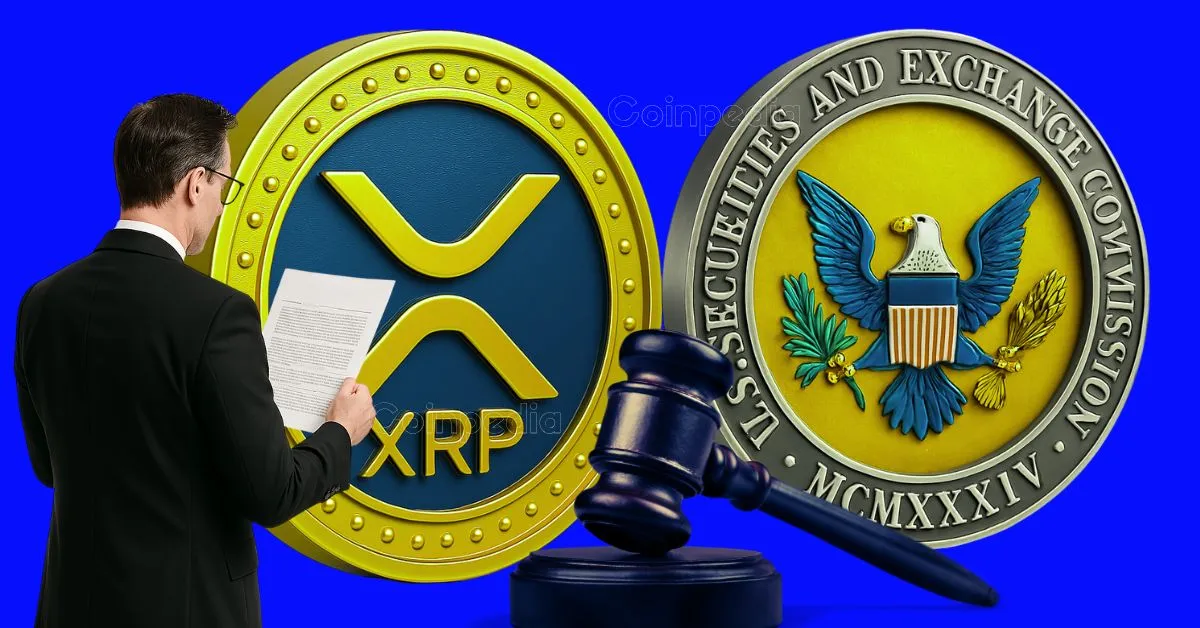The legal battle between Ripple Labs and the U.S. Securities and Exchange Commission (SEC) has taken another unexpected turn, leaving the crypto community in a state of uncertainty. The recent denial of a joint motion by both parties to settle the case has prolonged a dispute that has already lasted over four years. This decision has far-reaching implications, not only for Ripple and its cryptocurrency XRP but also for the broader digital asset landscape. As the timeline extends further into the future, it is crucial to understand the events leading up to this point, the reasons behind the judge’s decision, and the potential outcomes that lie ahead.
The origins of this legal saga trace back to late 2020 when the SEC filed a lawsuit against Ripple Labs, alleging that the company’s sale of XRP constituted an unregistered securities offering. Since then, the case has been marked by a series of victories and setbacks for both sides. In 2023, Judge Analisa Torres made a significant ruling, stating that XRP sales to the public on exchanges did not qualify as securities transactions, while institutional sales did. This partial victory for both parties left the case unresolved, with ongoing legal complexities.
The most recent development saw Ripple and the SEC attempting to reach a settlement, proposing to reduce Ripple’s penalty from $125 million to $50 million and lifting certain restrictions on XRP sales. This proposal sparked optimism among investors and traders, who hoped for a swift resolution. However, Judge Torres denied the joint motion, citing procedural impropriety. The judge emphasized that the court could not endorse a negotiated outcome without a solid legal foundation, particularly after the final judgment had been issued. Consequently, Ripple remains subject to the original $125 million penalty, and the permanent injunction on certain XRP sales remains in place.
The immediate market reaction to the denial was swift and negative. XRP’s price experienced a downward slide, reflecting the disappointment and uncertainty among investors. Short-term price volatility is typical following legal news, but the longer-term implications of this decision weigh heavily on the market. Legal analysts and crypto lawyers have been quick to dissect the significance of the denial and its potential impact on the future of the case. Fred Rispoli, a prominent attorney in the crypto space, noted that both Ripple and the SEC must submit a status report to the Second Circuit Court of Appeals in August. This report will outline each side’s intentions, whether they plan to appeal or pursue a new settlement.
The pathways ahead for the case are multifaceted. One possibility is that either Ripple or the SEC, or both, could challenge aspects of the court’s prior rulings through an appeal. Appeals are complex and time-consuming, potentially extending the lawsuit into late 2026 or even 2027. Another possibility is that both parties will file a new, more procedurally sound motion that addresses the court’s concerns. However, this would require significant effort and potential concessions from both sides. If neither party can agree or present a convincing proposal, the existing judgment will remain in effect, with Ripple operating under the court’s constraints and the SEC’s victory on institutional sales intact.
The failed joint motion highlights the delicate balance Ripple and the SEC must maintain. Both parties have incentives to resolve the case quickly, as Ripple seeks business certainty and market access, while the SEC aims to assert its authority over digital assets. However, the process is fraught with procedural challenges. Courts do not simply approve settlements without a robust legal justification. Former SEC lawyers have suggested that Ripple’s best course of action may be to craft a more comprehensive motion that addresses the court’s procedural and jurisdictional concerns. Nevertheless, this approach would require time and potentially uncomfortable concessions from Ripple.
Beyond the immediate implications for Ripple and XRP, this case has broader regulatory and legal significance. The crypto industry views this lawsuit as a critical indicator of how the U.S. legal system will address digital assets, new fundraising methods, and innovative financial technologies. The denial of the joint motion underscores the ongoing uncertainty in the regulatory landscape, driven by court orders rather than comprehensive legislation or agency rulemaking. Startups and investors will closely monitor the next phase of the lawsuit for insights into compliance, enforcement risks, and the prospects for future innovation.
Ripple’s leadership has consistently emphasized their commitment to defending XRP’s legal status and challenging what they perceive as regulatory overreach. In public statements, the company has reaffirmed its confidence in the court’s prior findings that favored Ripple on retail XRP sales, while criticizing the delays caused by continued litigation. However, the reality is that ongoing appeals or motions will result in continued expenses, operational restrictions, and business uncertainty. For companies operating in the U.S. crypto space, the Ripple case serves as a cautionary tale, highlighting the slow, complex, and unpredictable nature of regulatory and judicial processes.
In conclusion, the denial of the Ripple-SEC joint motion is a significant setback, replacing the hope for a swift resolution with more legal wrangling and uncertainty. The next critical juncture will occur in August when both parties must declare their intentions to the appeals court. If no solution emerges, the case will likely proceed to appeals, potentially extending the timeline into late 2025 and beyond. For Ripple, the costs are evident: uncertainty, business limitations, and ongoing tension. For the SEC, the case is a testament to its approach to digital assets but also a reminder of the judicial scrutiny its claims will face. For the broader crypto industry, the result is another lesson in the complexity and inertia of the U.S. regulatory system. The Ripple-SEC showdown is far from over, and its importance will only grow as the case continues to unfold, leaving the digital asset world in a state of anticipation and uncertainty.











